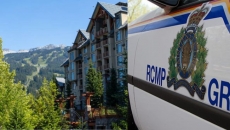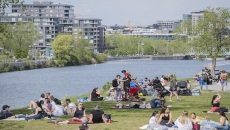Burnaby RCMP is warning the public of rental scams after a Burnaby resident had their personal identity stolen and is now their ID is being used in fake Craiglist ads.
Via release, Mounties say late last year, an adult male reported that his identity was stolen possible through a ransomware attack and then leaked onto the dark web. Since then, his identity has been used in various scams but most recently posing as a landlord seeking tenants in Vancouver.
“This victim is doing everything in their power to prevent further identity scams, but it keeps happening,” said Corporal Alexa Hodgins of the Burnaby RCMP. “Once your information has been leaked, shared or stolen, it is very hard to get back. We want the public to know the dangers of sharing their personal information online and to use the appropriate safeguards to prevent it.”
The victim continues to report fake driver’s licences, a fake passport, and fake Craiglist ads listed in his name.
In three separate instances, the identity theft victim was contacted directly by potential renters regarding his Craiglist ads. One of these potential renters even sent copies of a fake driver’s licence and a fake passport which had been sent to the potential renter as part of the Craiglist scam.
“These potential renters did the right thing. They became suspicious and reached out to the person directly, instead of continuing communication through the Craigslist platform”, said Corporal Alexa Hodgins. “By doing this, they not only prevented sending money to the scammer but alerted the original identity theft victim of what was happening online in their name.”
Here are some warning signs to look out for when shopping for a rental:
- The monthly rent is lower than other similar places
- You're asked to leave a deposit without any formal rental agreement or lease in place
- You're asked to send money to someone outside the country
- When you ask about the apartment, you get an email that sends you to a website asking for Personal or financial information
- Ads show pictures of the outside of the property only, or pictures that don't match the actual property or address
Here’s what you can do to avoid being scammed:
- Go to the address, make sure the listing is truthful and accurate. If you are unable to go in person, use the Internet to see actual images of the rental
- Research the address to ensure it is not a duplicate post. You may even conduct a reverse image search to see if the photos were used elsewhere
- Schedule a showing and confirm that the landlord will be present
- If you plan on renting in a new development, contact the builder to confirm ownership
- Request a lease or contract. Review it thoroughly
To protect yourself please find review and familiarize yourself with the Residential Tenancy Act. The Canadian Anti-Fraud Centre and Provincial Government websites are great resources for tips and safety measures.






